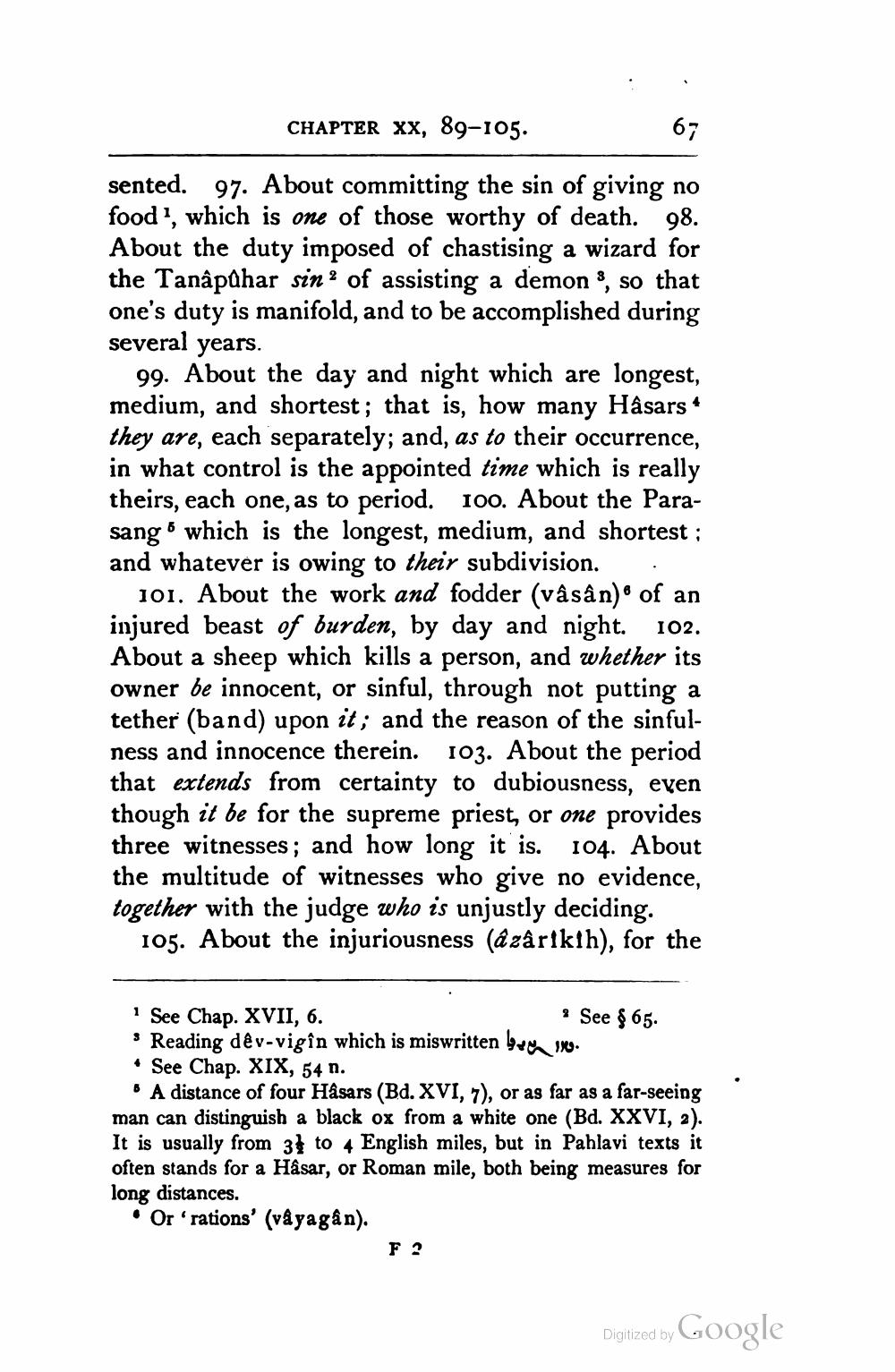________________
CHAPTER XX, 89-105.
67
sented. 97. About committing the sin of giving no food', which is one of those worthy of death. 98. About the duty imposed of chastising a wizard for the Tanâpuhar sin of assisting a demon 3, so that one's duty is manifold, and to be accomplished during several years.
99. About the day and night which are longest, medium, and shortest; that is, how many Hâsars * they are, each separately; and, as to their occurrence, in what control is the appointed time which is really theirs, each one, as to period. 100. About the Parasang which is the longest, medium, and shortest ; and whatever is owing to their subdivision.
5
101. About the work and fodder (vâsân)" of an injured beast of burden, by day and night. 102. About a sheep which kills a person, and whether its owner be innocent, or sinful, through not putting a tether (band) upon it; and the reason of the sinfulness and innocence therein. 103. About the period that extends from certainty to dubiousness, even though it be for the supreme priest, or one provides three witnesses; and how long it is. 104. About the multitude of witnesses who give no evidence, together with the judge who is unjustly deciding.
105. About the injuriousness (âzârikth), for the
1 See Chap. XVII, 6.
Reading dev-vigîn which is miswritten b
See Chap. XIX, 54 n.
A distance of four Hâsars (Bd. XVI, 7), or as far as a far-seeing man can distinguish a black ox from a white one (Bd. XXVI, 2). It is usually from 3 to 4 English miles, but in Pahlavi texts it often stands for a Hâsar, or Roman mile, both being measures for long distances.
Or 'rations' (vâyagân).
2 See § 65.
F 2
Digitized by
Google




